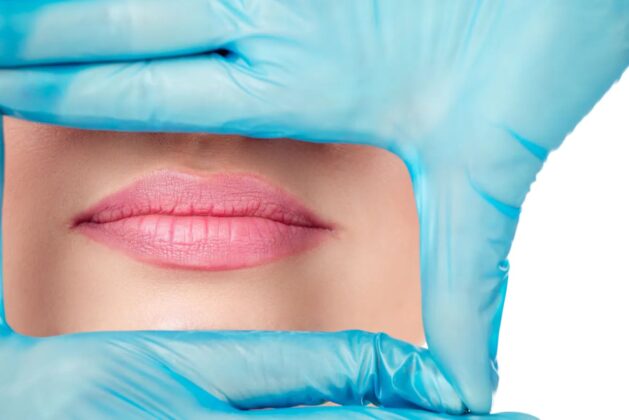[ad_1]
It is often seen that the color of some parts of your facial skin is dark, especially the area around the mouth. Which looks weird and also affects your overall confidence level. To know why this is so and how to get rid of this problem, we spoke to Dr. Anurag Arya, dermatologist, Sparsh Clinic Meerut. Let’s find out what its causes and diagnosis can be:
1 Hyperpigmentation
Hyperpigmentation can cause darkening of the skin around the mouth, which is a very common cause. Hyperpigmentation is the overproduction of melanin in certain areas of the skin, causing dark spots to be darker than the rest of your skin.
Hyperpigmentation can affect people of all ages and different skin types. Pigmentation that occurs in the area around the mouth includes sunspots and melasma. Melasma, also known as chloasma, usually affects pregnant women more due to hormonal changes.
2 weather conditions
Dark spots around the lips can also be caused by darkening of the skin due to sun exposure and sunburn or other injury. If you frequently lick your lips and the area around them in very cold weather, this can also damage your skin tone and make it darker.
3 drugs
There are certain medications that can cause pigmentation that can also affect the area around the mouth. These include tricyclic antidepressants and anti-malarial drugs. Chemicals present in some ointments can also cause hyperpigmentation as a side effect.

Addison’s disease and hemochromatosis are more serious causes of pigmentation. Addison’s disease can cause dark spots in skin folds, joints such as knees and elbows, toes and knuckles, the area around the lips and the inside of the cheeks.
4 Pigmentation after trauma
Trauma to the skin around the mouth can also cause skin discoloration. Acne, skin irritation, injury or any type of infection can cause hyperpigmentation. In most cases of skin injury, there is a brown or black discoloration of the lesions and a change in the color of the skin. This is known as post-inflammatory hyperpigmentation.
5 Lack of vitamins
Vitamin B12 and vitamin D deficiency is associated with hyperpigmentation of the skin. In a 2018 study, vitamin D deficiency was the main cause of melasma in humans. This usually happens when you stay out of the sun for a long time.
How to get rid of hyperpigmentation around the mouth?
If you know the exact cause of skin darkening, treatment is much easier. But what is the opinion of a dermatologist? Is it easy to get rid of this skin disease?
Darkening of the skin around the mouth is medically called perioral hypermelanosis. There are many treatments to treat this skin condition such as Nd: YAG laser, chemical peels, etc. Pigment removing agents such as kojic acid and azelaic acid are equally beneficial.
1 exfoliation
If you regularly exfoliate the area around your mouth with a gentle scrub, it can remove dead cells and help lighten the skin. Opt for a chemical exfoliant as it does not harm the skin.
2 brightening creams
Skin lightening creams can be effective in reducing the dark area around the mouth. Look for ingredients like glabridin, kojic acid, vitamin C, grape seed extract, azelaic acid, arbutin, curcumin, or niacinamide. These inhibit the production of tyrosinase, which the skin needs to produce melanin. Apply as directed on the package.

Keep in mind that if you have celiac disease or a gluten allergy, avoid products containing wheat-derived azelaic acid. People with sensitive skin should also avoid products containing kojic acid.
3 laser treatments
Laser treatment is an effective way to get rid of dark areas around the mouth. Although not permanent, they can lighten the skin. Results depend on your skin care routine, sun exposure and also your genes.
A special treatment known as Fraxel laser treatment is used to treat pigmentation. It is a local microscopic laser that supports the regeneration of elastin and collagen. It is effective in reducing dark spots and rejuvenating skin tone.
4 acid peels
Your dermatologist may use a salicylic acid or glycolic acid peel to treat the skin around the pimples. These peels do not provide a permanent solution and may return. These peels penetrate deep into the skin and repair damaged cells. Post-treatment precautions such as staying out of the sun, using sunscreen, and protecting the skin can prolong the effects of the peel.
[ad_2]



Leave a comment